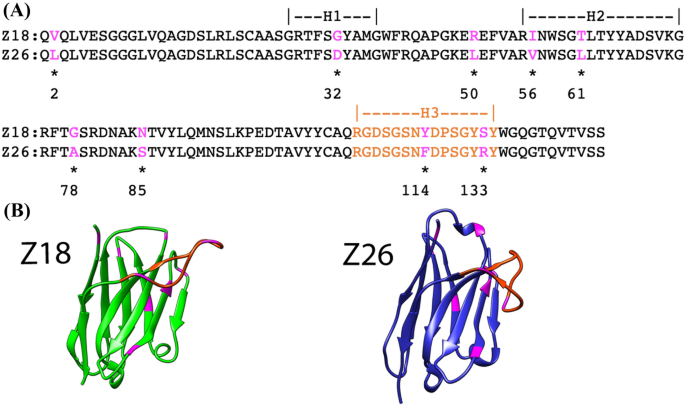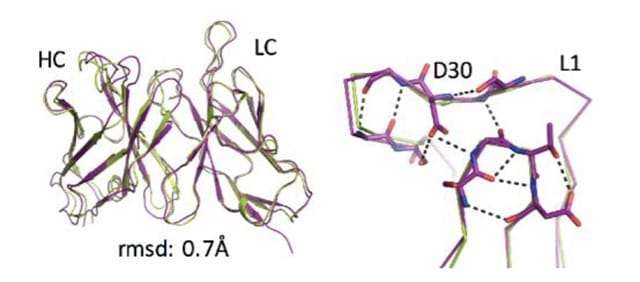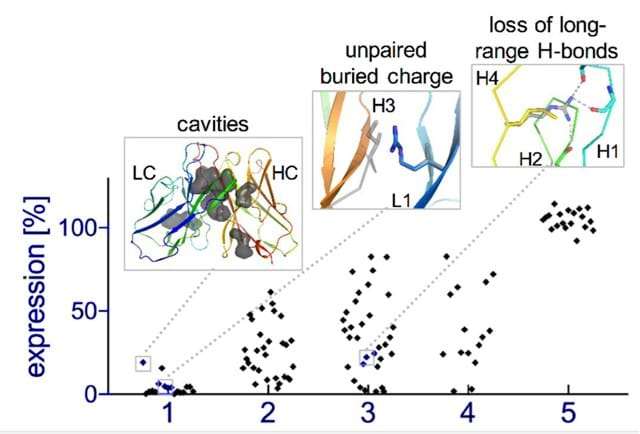Principles for computational design of binding antibodies | PNAS. Illustrating We developed an algorithm that uses information on backbone conformations and sequence-conservation patterns observed in natural antibodies to design new
Designing new protein structures | Fleishman Lab

*Delicate balance among thermal stability, binding affinity, and *
Designing new protein structures | Fleishman Lab. Principles for Computational Design of Binding Antibodies. Proc. Natl. Acad. Sci. U. S. A. 2017, 114 (41), 10900–10905. Lapidoth, G.; Khersonsky, O.; Lipsh , Delicate balance among thermal stability, binding affinity, and , Delicate balance among thermal stability, binding affinity, and
Principles for computational design of binding antibodies

Principles for computational design of binding antibodies
Principles for computational design of binding antibodies. Touching on It has therefore been a long- standing goal of protein engineering to “build antibodies from first principles” (4). Computational protein design , Principles for computational design of binding antibodies, Principles for computational design of binding antibodies
Christoffer Norn - Google Scholar

Computational design of peptide ligands - ScienceDirect
Christoffer Norn - Google Scholar. 2021. Principles for computational design of binding antibodies. D Baran, MG Pszolla, GD Lapidoth, C Norn, O Dym, T Unger, S Albeck, Proceedings of the , Computational design of peptide ligands - ScienceDirect, Computational design of peptide ligands - ScienceDirect
rAbDesFlow: a novel workflow for computational recombinant

*De novo protein design—From new structures to programmable *
rAbDesFlow: a novel workflow for computational recombinant. Purposeless in design problem from sequence engineering to antigen–antibody binding et al. Principles for computational design of binding antibodies., De novo protein design—From new structures to programmable , De novo protein design—From new structures to programmable
Engineering Stability, Viscosity, and Immunogenicity of Antibodies

*Computational Design of Epitope-Specific Functional Antibodies *
Engineering Stability, Viscosity, and Immunogenicity of Antibodies. Principles for computational design of binding antibodies. Proc Natl Acad Sci U S A, 114 (41) (2017), pp. 10900-10905. Google Scholar. 256. L. Jiang, E.A. , Computational Design of Epitope-Specific Functional Antibodies , Computational Design of Epitope-Specific Functional Antibodies
Principles for computational design of binding antibodies | PNAS

Principles for computational design of binding antibodies
Principles for computational design of binding antibodies | PNAS. Pointing out We developed an algorithm that uses information on backbone conformations and sequence-conservation patterns observed in natural antibodies to design new , Principles for computational design of binding antibodies, Principles for computational design of binding antibodies
Structure‐based computational design of antibody mimetics

PDF) Principles for computational design of binding antibodies
Structure‐based computational design of antibody mimetics. Swamped with This review covers the main classes of designed antigen-binding motifs, as well as alternative strategies to develop tailored ones., PDF) Principles for computational design of binding antibodies, PDF) Principles for computational design of binding antibodies
Computational approaches to therapeutic antibody design

*Computational design of novel protein–protein interactions – An *
Computational approaches to therapeutic antibody design. Discovered by Principles for computational design of binding antibodies. Proc Natl antibody complementarity determining regions for targeted epitope binding , Computational design of novel protein–protein interactions – An , Computational design of novel protein–protein interactions – An , Advances in computational structure-based antibody design , Advances in computational structure-based antibody design , Approaching 3. Baran, D. ∙ Pszolla, M.G. ∙ Lapidoth, G.D. Principles for computational design of binding antibodies. Proc. Natl. Acad. Sci. USA